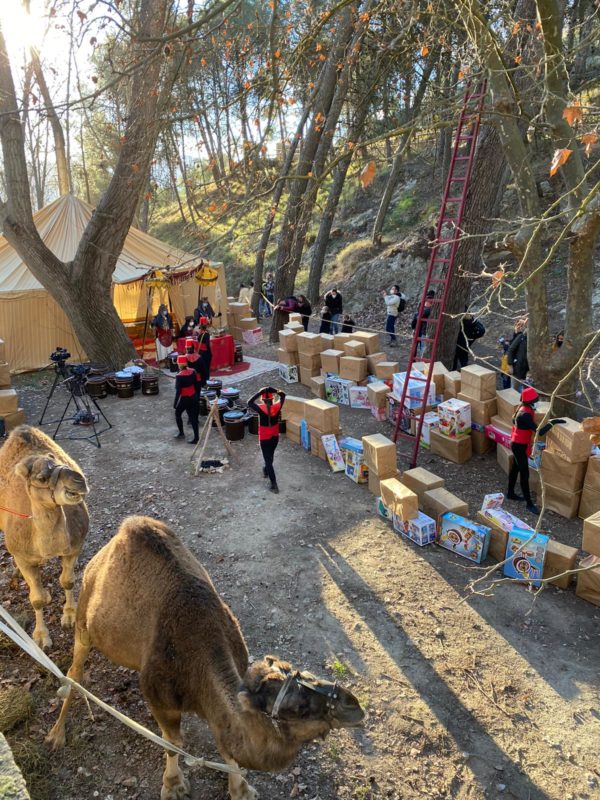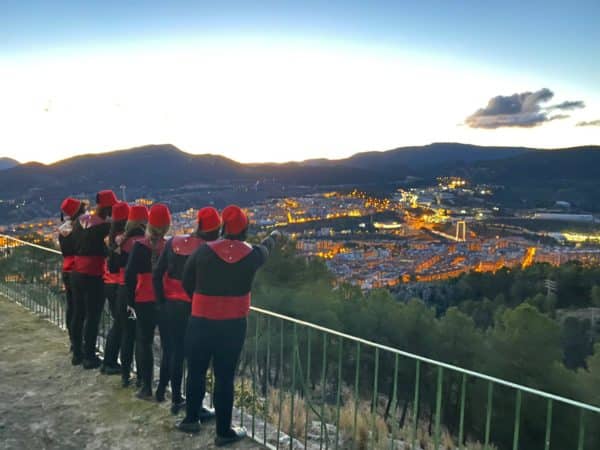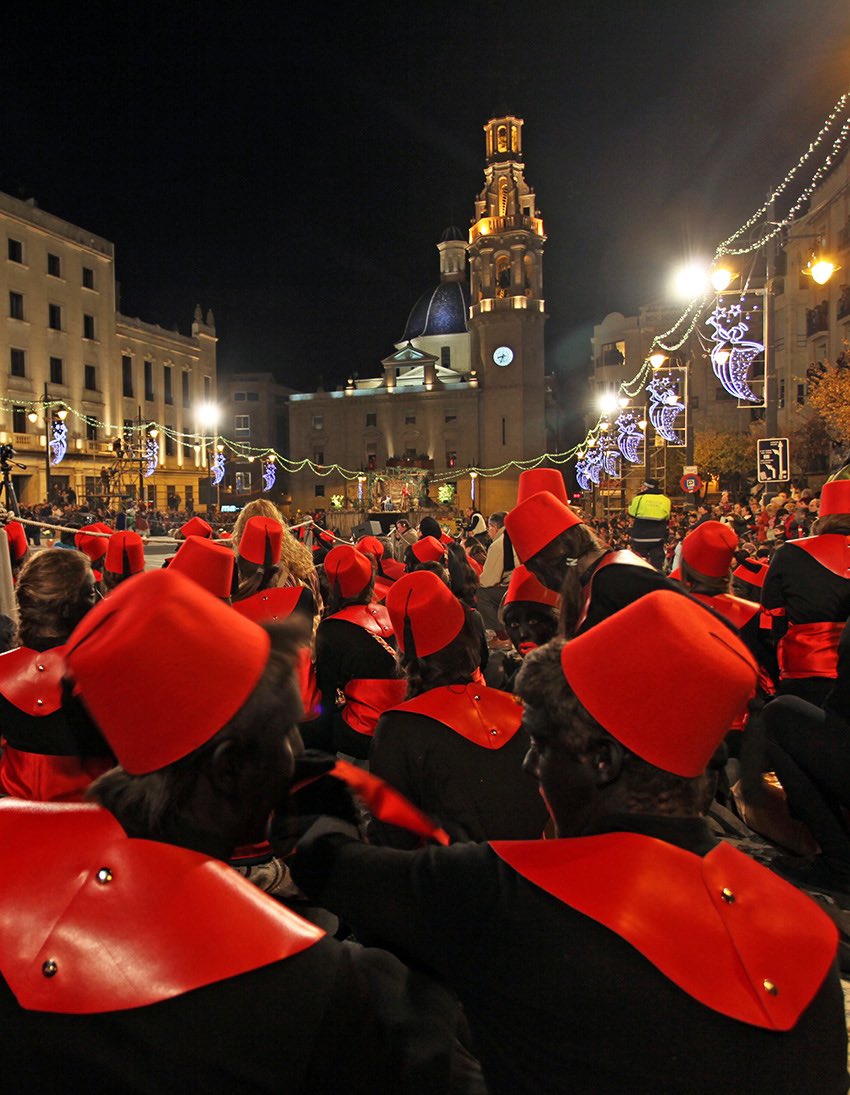Dating back almost 140 years, the people of Alcoy, just north of Alicante, dress themselves up as pages. They paint their faces black, draw on bright red lips, and dress from head to toe in black clothing
Their performance is part of the town’s 3 Kings Parade on 5 January, as they march through the town proudly alongside roman centurions, dancers, Disney characters and many other people decked out in their Christmas regalia.
But in recent years, these black painted figures, known as pajes negros, have become the subject of heated debate with many people now accusing the tradition of promoting racist stereotypes.
During the parade, the pajes use red ladders to climb up onto balconies and deliver presents to the children. It the oldest such parade in Spain with around 2,000 people taking part, around 300 of which are dressed as pages.

But now the long tradition could be coming to an end as, in less than a week, over 13,000 have signed a Change.org petition calling the ‘Black face’ custom ‘racist and offensive’.
The digital magazine Afroféminas, which concentrates on anti-racism and black feminism, has launched the Change.org/StopBlackFace petition calling for “the transformation of the Alcoy parade into a party free of racism” and therefore, “without the traditional black-painted pages that characterise the spectacle.
On their website they write, “It doesn’t matter what you think you are trying to represent. It does not matter that you think that this way you make children happy. It doesn’t matter if it’s a tradition. If you paint yourself in a colour that is not yours, it is racist.”
They also quote a European Parliament resolution in which the member states are asked to denounce and refrain from “racist and aphrophobic traditions such as blackface”

The campaign has been joined by journalists and influencers such as Lucía Mbomío, Desirée Bela, Moha Gerehou, the deputy in the Madrid Assembly Serigne Mbayé and the actress Asaari Bibang.
However the Alcoy councillor for heritage and tourism, Lorena Zamorano Gimeno, says that the black faces are often the parents of Alcoy’s children, who are painted black so that they can remain anonymous from their offspring.
She said that “the pajes are the post important part of the parade as they are a symbol of magic and wonder. They are almost more important than the kings themselves, because they deliver the presents. Kissing or hugging a paje is a magical and marvellous experience where the children believe all their dreams have come true.”
Afroféminas counter her argument by saying that their criticism is not against the Cabalgata but against the representation of the pages. That is why they have asked to change these figures into others that “respect all people equally”.
The procession is currently recognised in Spain as a Fiesta of National Tourist Interest and listed as Intangible Cultural Heritage.





